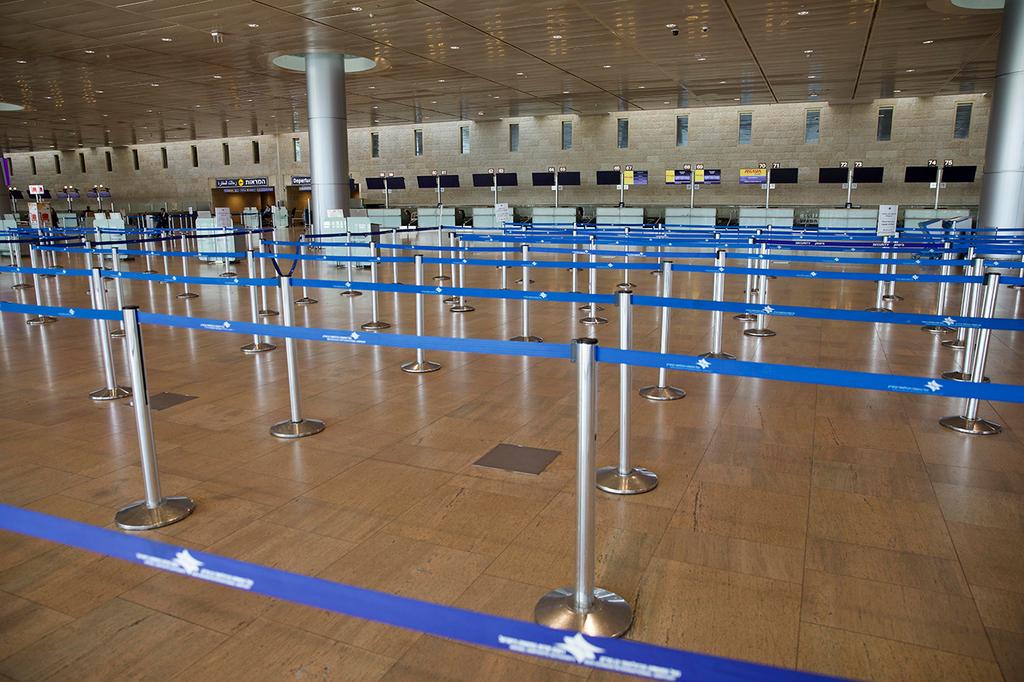Getting your Trinity Audio player ready...
Prime Minister Benjamin Netanyahu announced on Monday that all arrivals from abroad, starting 8pm (Israel time), must self-quarantine for 14 days after arrival, regardless of the destination they arrived from.
"After a whole day of complex discussions, we've reached a decision: every person arriving in Israel from abroad must enter a 14-day quarantine," Netanyahu told reporters. "This is a difficult decision, but it is necessary to maintain public health, and public health is above all else. The decision will be in effect for the next two weeks."
Travelers who are not permanent residents of Israel will not be allowed in the country and will be sent back.
The decision is not retroactive and goes into effect in 72 hours, Channel 12 reported.
The decision was preceded by a heated argument between Security ministers, as they failed earlier Monday to reach an agreement over whether to extend the preventive measures against the virus, namely, the extension of the quarantine obligation imposed on arrivals from countries hit by the pathogen to the United States as well.
Some of the ministers strongly opposed the move and Interior Minister Aryeh Deri claimed the new measures will put an additional 240,000 people in quarantine.
The discussion was suspended and Netanyahu moved on to discuss medical and technological solutions to the coronavirus crisis.
On Sunday, Netanyahu said the government will decide on extended measures within one day, in a joint press conference with Health Minister Yaacov Litzman.
"This is a very difficult decision to make," the prime minister said. "We have had extensive discussions on the course of action. We are not talking about closing our gates completely but considering quarantine for anyone coming into the country – Israelis, and foreigners."
At the center of the debate was Netanyahu's alleged reluctance to annoy the American administration.
Such a decision to restrict entry from the United States alone could undermine Netanyahu's efforts, as he appears to be focused on coordination with the White House, and a wider ban on all arrivals would mitigate the damage.
Following Netanyahu's announcement, senior executives of Israel's flag carrier, El Al, convened an emergency meeting Monday evening to discuss ways for the state to maintain its aerial routes in light of the new directive.
The company reported it is studying Netanyahu's decision and examining the list of destinations that will operate in the coming days.
Meanwhile, the Foreign Ministry is preparing to evacuate families of diplomats serving at the Israeli embassy in Italy. The diplomats themselves will remain in their posts.
The Israeli embassy in Athens has been closed for a two-week period as the facility is undergoing disinfection after an envoy was found to have contracted the coronavirus while traveling on the same plane with a group of Greek pilgrims, many of whom had been infected.



